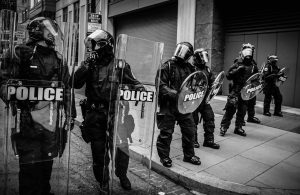Two Chicago police officers are under investigation after allegedly beating a teenaged boy whom they had arrested in the past. Two others face allegations that they failed to intervene or stop the unjustified use of force. The incident is being investigated by the Civilian Office of Police Accountability. Police say that they only went after the boy after he had struck their vehicle with a stolen vehicle in his possession and pointed a gun at the officers.
One of the officers is alleged to have struck the teenager in the face and head, while another is alleged to have pressed his face into the ground and into a wire fence. The other officer is accused of punching the teenager without justification. A third officer is accused of failing to intervene and a fourth is accused of turning off his body camera. The police are also accused of conducting an improper vehicle pursuit, among other procedural issues. None of the officers have been charged with disciplinary violations.
Analyzing the Situation
 Chicago Criminal Lawyer Blog
Chicago Criminal Lawyer Blog





